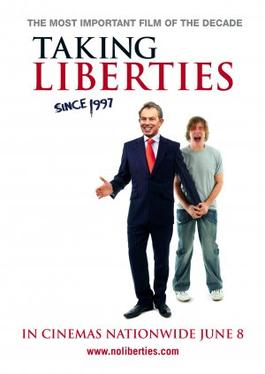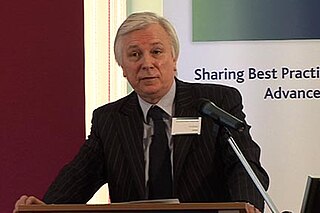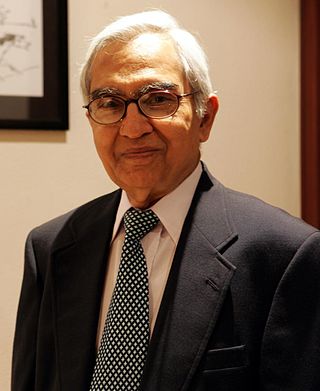Related Research Articles

Neurology is the branch of medicine dealing with the diagnosis and treatment of all categories of conditions and disease involving the nervous system, which comprises the brain, the spinal cord and the peripheral nerves. Neurological practice relies heavily on the field of neuroscience, the scientific study of the nervous system.

Moazzam Begg is a British Pakistani who was held in extrajudicial detention by the US government in the Bagram Theater Internment Facility and the Guantanamo Bay detainment camp, in Cuba, for nearly three years. Seized by Pakistani intelligence at his home in Pakistan in February 2002, he was transferred to the custody of US Army officers, who held him in the detention centre at Bagram, Afghanistan, before transferring him to Guantanamo Bay, where he was held until January 2005.

Sami Mohy El Din Muhammed Al Hajj, aka Sami Al-Haj is a Sudanese journalist for the Al Jazeera network. In 2001, while on his way to do camera work for the network in Afghanistan, he was arrested by the Pakistani army and held in the United States Guantanamo Bay detainment camp in Cuba for over six years. After his release, al-Hajj wrote a book titled Prisoner 345. He was released without charge on May 1, 2008. He later attempted to launch legal action against George W. Bush.
Dave Clark is a former television presenter from Ilkley, West Yorkshire, England who worked for British television station Sky Sports from 1998 until 2020, where he was the anchorman for boxing and darts coverage.

Taking Liberties is a British documentary film about the erosion of civil liberties in the United Kingdom and increase of surveillance under the government of Tony Blair. It was released in the UK on 8 June 2007.

Enemy Combatant is a memoir by British Muslim, Moazzam Begg, co-written by Victoria Brittain, former associate foreign editor for The Guardian, about Begg's detention by the government of the United States of America in Bagram Detention Facility and at Camp Echo, Guantanamo Bay and his life prior to that detention. It was published in Britain as Enemy Combatant: A British Muslim's Journey To Guantanamo and Back (ISBN 0-7432-8567-0), and in the US as Enemy Combatant: My Imprisonment at Guantanamo, Bagram, and Kandahar (ISBN 1-59558-136-7). In the US, the foreword was written by David Ignatius of The Washington Post.

Leucine-rich repeat kinase 2 (LRRK2), also known as dardarin and PARK8, is a large, multifunctional kinase enzyme that in humans is encoded by the LRRK2 gene. LRRK2 is a member of the leucine-rich repeat kinase family. Variants of this gene are associated with an increased risk of Parkinson's disease and Crohn's disease.
Cage is a London-based advocacy organisation which aims to empower communities impacted by the War on Terror. Cage highlights and campaigns against state policies, developed as part of the War on Terror. The organisation was formed to raise awareness of the plight of detainees held at Guantánamo Bay and elsewhere and has worked closely with former detainees held by the United States and campaigns on behalf of current detainees held without trial. Cage was formerly known as Cageprisoners, and is ordinarily styled as "CAGE".

Gita Sahgal is a British writer, journalist, film director, and women's rights and human rights activist, whose work focusses on the issues of feminism, fundamentalism and racism.

Andrew John Lees FRCP FRCP(G) FMedSci is Professor of Neurology at the National Hospital for Neurology and Neurosurgery, Queen Square, London and University College London. In 2011 he was named as the world's most highly cited Parkinson's disease researcher.
David Eidelberg is an American neuroscientist who is a professor of Neurology and Molecular Medicine at the Zucker School of Medicine. He is a neuroscientist best known for applying functional imaging of the brain to study neurological diseases.

Dr. Bhim Sen Singhal is the Director of Neurology at Bombay Hospital Institute of Medical Sciences in Mumbai, India.
Ian Cobain is a British journalist. Cobain is best known for his investigative journalism into human rights abuses committed by the British government post-9/11, the secrecy surrounding the British state and the legacy of the Northern Ireland's Troubles.

Alim Louis Benabid is a French-Algerian emeritus professor, neurosurgeon and member of the French Academy of Sciences, who has had a global impact in the development of deep brain stimulation (DBS) for Parkinson's disease and other movement disorders. He became emeritus professor of biophysics at the Joseph Fourier University in Grenoble in September 2007, and chairman of the board of the Edmond J. Safra Biomedical Research Center in 2009 at Clinatec, a multidisciplinary institute he co-founded in Grenoble that applies nanotechnologies to neurosciences.
Sergio Canavero is an Italian neurosurgeon known for his controversial claims about the near-term feasibility of head transplantation—the grafting of a head onto a new body—in humans. He made headlines in 2015 when he publicly announced that he would perform such a procedure on a human in two years' time. In 2017, Canavero and colleagues performed a rehearsal head transplantation procedure on two cadavers, and he announced his intention to "imminently" perform the operation on a live human patient paralyzed from the neck down.

The Krembil Research Institute, formerly known as the Toronto Western Research Institute, is an academic medical research institute in Toronto. It is one of the largest research institutes in Canada focusing on human neurological disease.

Michael Jeffrey Aminoff is a clinical neurologist and neurophysiologist whose later clinical work focused on treating Parkinson's disease and related movement disorders. He retired in 2022 and lives in San Francisco, California.
Miratul Muqit FRSE FMedSci is a British neurologist and a Programme Lead at the MRC Protein Phosphorylation and Ubiquitylation Unit (MRCPPU) in the School of Life Sciences at the University of Dundee. His research focuses on the study of the PINK1 gene, mutations in which are a major cause of Parkinson's disease.
Dennis J. Selkoe is an American physician (neurologist) known for his research into the molecular basis of Alzheimer's disease. In 1985 he became Co-Director of the Center for Neurological Diseases and from 1990, Vincent and Stella Coates Professor of Neurological Diseases at Harvard Medical School. He is also a Fellow of the AAAS and a member of the National Academy of Medicine.
Jennifer Rosemary Vaughan was a British neurologist and co-lead of The Doctors' Association UK. She specialised in movement disorders, with a focus on Parkinson's disease. Alongside her research, Vaughan campaigned to improve justice within healthcare. She was made an Officer of the Order of the British Empire in the 2023 New Year Honours.
References
- ↑ "Dr David Nicholl at The Stirrer". thestirrer.thebirminghampress.com. Archived from the original on 22 September 2021. Retrieved 18 November 2019.
- ↑ "Guantanamo medics 'fail patients'". 7 September 2007 – via news.bbc.co.uk.
- ↑ Clinical Neurology CD-ROM Archived 2011-07-10 at the Wayback Machine .
- ↑ "Cloning of the gene containing mutations that cause PARK8-linked Parkinson's disease" by Paisan-Ruiz C, Jain S, Evans EW, Gilks WP, Simon J, van der Brug M, de Munain AL, Aparicio S, Gil AM, Khan N, Johnson J, Martinez JR, Nicholl D, Carrera IM, Pena AS, de Silva R, Lees A, Marti-Masso JF, Perez-Tur J, Wood NW, Singleton AB. Neurology 44(4):595-600 2004
- ↑ Statement of support for Moazzam Begg, 2014, Cageprisoners
- ↑ Cobain, Ian (1 October 2014). "Moazzam Begg freed after terrorism case against him collapses". The Guardian. ISSN 0261-3077 . Retrieved 28 January 2020.
- ↑ Cobain, Ian; Ramesh, Randeep (3 October 2014). "Moazzam Begg complains of 'malicious' and 'vindictive' detention". The Guardian. ISSN 0261-3077 . Retrieved 28 January 2020.
- ↑ "Dr David Nicholl Lib Dem PPC for Bromsgrove (@djnicholl) | Twitter". twitter.com.
- ↑ "Doctor smeared by Jacob Rees-Mogg to stand for the Liberal Democrats". Mark Pack. 27 September 2019.